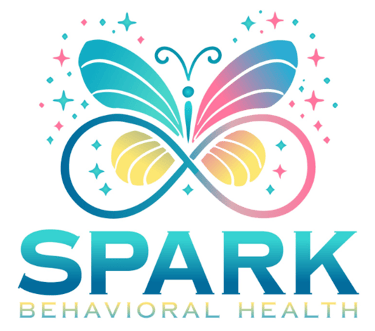
How to Tell If Your Child May Benefit from ABA Therapy In Portland, Oregon!
Wondering if your child may need ABA therapy? Learn the signs, benefits of early intervention, and steps to start ABA therapy in Portland and Oregon.
KIDS THERAPY
Timnit Yikealo
Wondering if your child may need ABA therapy? Learn the signs, benefits of early intervention, and steps to start ABA therapy in Portland and Oregon.


You’ve just started noticing things that worry you. Maybe your little one has started avoiding eye contact or he/she is struggling to say even a few words, while other children of the same age are already chatting away. Or in another scenario your toddler throws long, exhausting tantrums when you just replace his/her cup at breakfast or you took a new route on the way home. Like many parents you’ve read countless articles, asked friends, and scrolled through parenting forums at midnight, yet you still feel uncertain: What should I do next?
If your child has recently been diagnosed with autism or you’re waiting on an evaluation you’re not alone. Because so many parents in Portland and across Oregon ask the same questions every day. The good news? Help is out there. And it really works.
One of the most researched and trusted options for children with autism is Applied Behavior Analysis (ABA) therapy. But how do you know if ABA is the right fit for your child? Let’s talk about it in detail.
What Exactly is ABA Therapy (and Why Does It Work)?
ABA therapy is a structured, science-based approach that focuses on using positive reinforcement to teach skills and reduce behaviors that interfere with learning. For decades, it’s been considered the gold standard in autism treatment and there’s a reason for that.
According to a recent study published in BMC Psychology, ABA therapy can lead to significant improvements in communication, social interaction, and daily living skills for children on the autism spectrum. It’s also recommended by the U.S. Surgeon General as an evidence-based treatment for autism.
Here’s what makes ABA different: it’s personalized. A Board Certified Behavior Analyst (BCBA) designs a custom plan based on your child’s strengths and challenges. Everything is tracked with data so the plan can be adjusted as your child progresses.
Imagine this: your child needs help asking for water. ABA might start by teaching them to point to a picture of a cup. Then, the next step could be saying “water.” Finally, it could progress to a full sentence like, “Can I have some water, please?” Step by step, your child learns skills that make life easier for them and for you.
Could ABA Therapy Help Your Child? Here’s What to Look For
No two kids are alike, but there are certain challenges that often signal a child could benefit from ABA. See if any of these sound familiar:
Your child has a hard time letting you know what they want. Maybe they cry or pull your hand toward the fridge instead of asking for a snack. Words come slowly, or maybe not at all. ABA can help bridge that gap teaching ways to communicate, whether that’s using pictures, gestures, or spoken words.
Social situations feel impossible. Some kids avoid eye contact, others play alone or seem unsure how to join in with peers. ABA breaks these skills down into small, doable steps like practicing turn-taking during a favorite game or learning how to say “Can I play too?”
Meltdowns seem to take over everything. If your child has frequent tantrums, gets aggressive, or even hurts themselves, it’s heartbreaking and exhausting. ABA looks at why those behaviors happen and teaches safer, calmer ways to cope.
Daily routines are a battle. Getting dressed, brushing teeth, following a schedule that should be simple can feel overwhelming. ABA breaks these tasks into bite-sized steps, rewarding progress so your child feels successful instead of stressed.
Big emotions around small changes. Does your child panic if you take a different route to the store? Even small transitions can feel like the end of the world. ABA helps kids build flexibility gradually, so changes don’t feel so scary.
To find more signs that may indicate your child could benefit from ABA, you can click the link to complete a short screening with questions designed to quickly flag potential concerns.
If you nodded your head at one or more of these, an ABA therapy evaluation might be worth considering. It doesn’t mean a lifetime of therapy, it means understanding your child better and giving them tools to thrive.
Why Early Intervention Matters So Much
While ABA therapy can help kids of any age, starting early often leads to the best outcomes. Research in Behavior Analysis in Practice found that children who begin ABA before the age of 5 make bigger improvements in communication, learning, and independence compared to those who start later.
Why? Because early childhood is when the brain is most adaptable. During this time, kids pick up new skills faster, and ABA takes advantage of that natural learning window. In Oregon, many early intervention programs recommend ABA therapy as part of an Individualized Family Service Plan (IFSP).
But don’t worry if your child is older it’s never too late. ABA also benefits school-age children and teens by teaching social skills, emotional regulation, and life skills for greater independence.
Questions Parents Often Ask About ABA Therapy
“Is ABA therapy only for children with autism?”
That’s the most common question we hear, and the answer is no—ABA isn’t just for autism. While it’s widely recommended for kids on the spectrum, it can also help children with ADHD, developmental delays, speech challenges, and even behavioral issues. It’s really about teaching useful skills and reducing behaviors that get in the way of learning.
“How long will it take before I see progress?”
It depends on the child, their needs, and how many hours of therapy they receive each week. Some parents notice small changes in a few weeks like fewer meltdowns or better eye contact while others see bigger progress over several months. Most providers suggest 10 to 30 hours a week for best results, but your team will guide you on what makes sense for your child.
“Does ABA work for older kids or teens?”
Absolutely. ABA is adaptable. For teens or kids who are considered “high functioning,” the focus often shifts toward social skills, handling big emotions, and building independence through things like learning to have a conversation, manage frustration, or even prepare for a first job.
“Can we do ABA at home, or does it have to be in a clinic?”
You have options. Many families love home based therapy because it happens in real life, where your child is most comfortable. Others choose clinic sessions for structure or a mix of both. Virtual ABA therapy is even an option now for families who need more flexibility.
“Does ABA therapy really work?”
Research and real-life stories say yes. Most children who receive ABA show meaningful progress in communication, social skills, and daily living. It’s not an overnight fix, but with consistency and the right team, it can truly open doors for your child’s future.
How to Get Started with ABA Therapy in Portland
If you’re feeling overwhelmed, here’s a simple roadmap:
Talk to your pediatrician or specialist. They can help with referrals and evaluations.
Schedule an ABA evaluation. A BCBA will observe your child, learn about their routines, and create a plan tailored to their needs.
Check your insurance. In Oregon, most insurance plans—including Medicaid—cover ABA therapy for autism.
Choose the right provider. Look for certified professionals who offer home, clinic, or virtual options.
Stay involved. Parent participation is crucial. The more you apply strategies at home, the faster your child will progress.
An evaluation usually includes observing your child during play, discussing their strengths and challenges, and setting goals. Over time, therapy plans are adjusted as your child grows and learns new skills.
The Bottom Line
Recognizing the signs and taking that first step toward ABA therapy can change everything for your child. The sooner you start, the more opportunities they’ll have to build confidence, learn new skills, and thrive.
If you’re in Portland or anywhere in Oregon and the signs we discussed sound familiar, consider scheduling an ABA evaluation. It could be the first step toward unlocking your child’s full potential.
